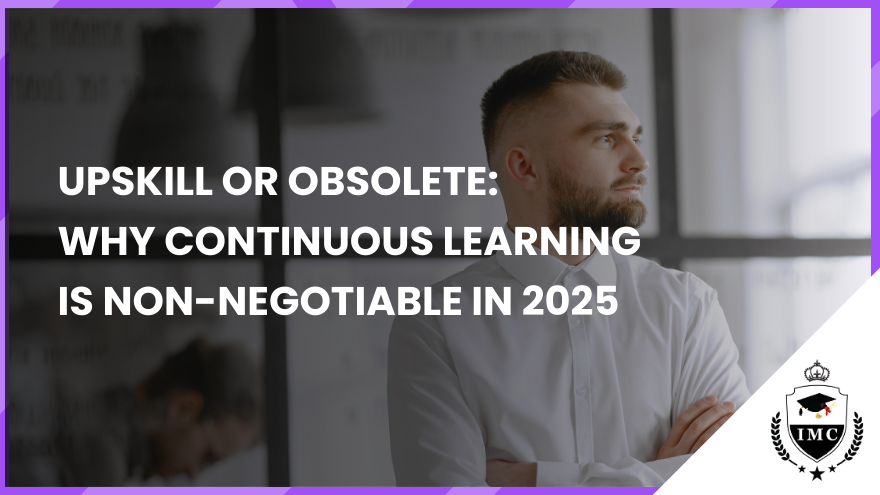Upskill or Obsolete: Why Continuous Learning is Non-Negotiable in 2025
In the face of digital transformation, artificial intelligence, and evolving global markets, the professional world in 2025 is unrecognisable compared to just a few years ago. Organisations are embracing new technologies at unprecedented rates, and industries are reshaping their core structures to remain competitive. Amidst this shift, one principle remains clear: continuous learning is no longer optional—it is essential.
The New Reality: Skills Have a Shorter Shelf Life
According to the World Economic Forum, over half of the global workforce will require significant reskilling or upskilling by 2025. The demand for soft skills such as emotional intelligence, critical thinking, and adaptability is rising, while proficiency in digital tools and data-driven decision-making is fast becoming a baseline expectation.
What once served as a sufficient qualification may no longer hold value. In this fast-paced environment, employees who do not actively develop new competencies risk becoming obsolete, replaced by newer, more agile talent or even by automation.
Why Continuous Learning Matters Now More Than Ever
1. Increased Organisational Agility
Upskilled employees help organisations respond swiftly to market shifts. Whether it's adopting new software or rethinking business strategies, a well-trained workforce brings the flexibility and innovation needed to pivot effectively.
2. Enhanced Productivity and Efficiency
Continuous learning ensures that employees are equipped with the latest knowledge, tools, and best practices. This translates into fewer errors, better use of time, and improved overall performance.
3. Improved Employee Retention and Engagement
Employees value growth. When organisations invest in training and development, it signals a commitment to individual career progression, resulting in higher job satisfaction and lower turnover.
4. Competitive Edge in the Marketplace
An organisation that champions continuous learning is better positioned to innovate, improve customer service, and maintain a competitive advantage over less proactive peers.
Building a Learning Culture
For learning to truly take root, it must go beyond occasional workshops or mandatory compliance modules. A strong learning culture is intentional, strategic, and embedded in the daily workflow.
Companies should encourage knowledge sharing, support microlearning opportunities, offer relevant certifications, and align training with business goals. Learning should not be viewed as a one-time event but as a continuous journey.
IMC Certifications: Supporting Lifelong Learning
At IMC Certifications, we understand that upskilling is not just about staying current—it’s about staying ahead. Our curated training programs, professional certifications, and corporate learning solutions are designed to equip individuals and organisations with the skills needed to thrive in 2025 and beyond.
Whether you're a professional seeking career growth or a business aiming to strengthen your team, the message is clear: invest in learning, or risk being left behind.
Take the first step today.
Explore our programs at www.imccertifications.com and discover how you can stay future-ready.






